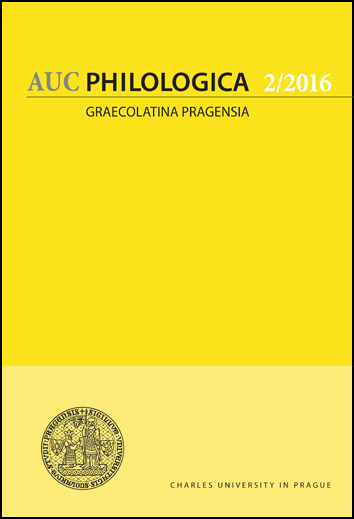Aristotle’s carp as Claretus’ bird comor? Tracing the origin of one medieval term
Aristotle’s carp as Claretus’ bird comor? Tracing the origin of one medieval term
Author(s): Hana ŠedinováSubject(s): Applied Linguistics, Ancient Philosphy, Philosophy of Middle Ages
Published by: Univerzita Karlova v Praze, Nakladatelství Karolinum
Keywords: ancient and medieval zoology; medieval Latin lexicography; Aristotle; Aristoteles Latinus; Michael Scotus; Thomas of Cantimpré; Bartholomaeus de Solencia dictus Claretus; carp; komor
Summary/Abstract: The research of medieval reception of Aristotle’s knowledge of zoology confirmed that on the way through the Arabic and Latin translation to mediaeval encyclopaedias Aristotle’s treatises underwent both large and small alterations in both names and descriptions of animals. The meaning of these new names often remained unchanged; in other instances, however, medieval authors interpreted their models so incorrectly that they endowed the original animal not only with a new name but also with new features of appearance and patterns of behaviour. In the Arabic and Latin translation of Aristotle’s treatise, the original information about the fertility of the carp remained basically unchanged, but given the phonetic differences between Greek, Arabic and Latin, the original Greek name κυπρῖνος from the relevant passage of Aristotle was deformed to the form kokonior and others like it. While consulting Michael’s translation, Thomas of Cantimpré did not comprehend that the animal that lays eggs several times a year was a fish, and he put it under an altered name komor to the book on birds and located it to Arabia. Thomas’ term then appears in a slightly different form comor in Czech medieval sources.
Journal: Acta Universitatis Carolinae Philologica
- Issue Year: 2016
- Issue No: 2
- Page Range: 111-123
- Page Count: 13
- Language: English

